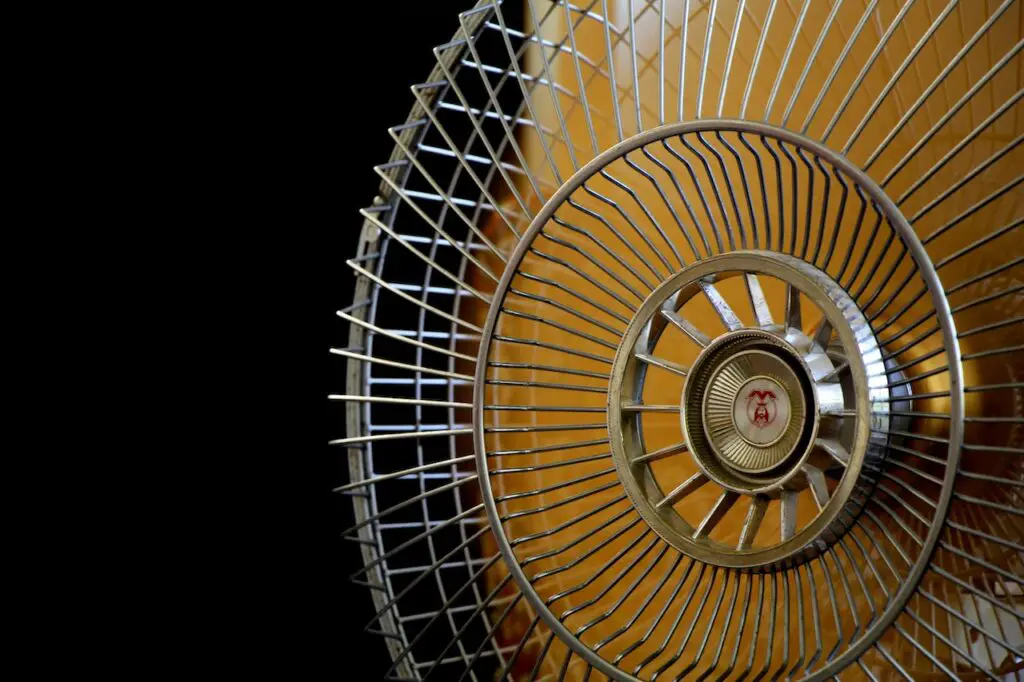
Stress and anxiety have become significant concerns in our fast-paced and increasingly busy lives. We all need a break from the hustle and bustle of daily life and unwind. Relaxing music promotes relaxation, reduces stress and anxiety, calms the mind, improves mental wellness, and, combined with meditation, can be a powerful tool to help increase our mental focus and improve our quality of life. Here, we will dive into seven different types of relaxing music, sounds, and noises that you can add to your daily routine to help you relax and feel your best.
What are the top 7 types of relaxing music, sounds, and noises?

1. Classical Music
Classical music is one of the oldest and most popular music for relaxation. It has a soothing, calming effect that can reduce anxiety and promote relaxation. The slow, melodic pace and harmonious tones of classical music help to create a sense of tranquility and inner peace.
Classical music can also be used to set the mood or atmosphere of an environment. Playing classical music in the background of a home or office can create a more comfortable atmosphere that reduces stress levels. Listening to classical music while studying or working can also enhance concentration and focus.
When choosing classical music for relaxation, it’s essential to consider the musical style. Baroque music is generally considered the best classical music for peace because of its slow, soothing rhythms. The most famous composer of this type of music is Johann Sebastian Bach. Classical composers such as Mozart, Beethoven, and Haydn are also great for relaxation music.
Classical music can help you relax and achieve a deeper level of meditation and mindfulness. Studies have shown that classical music can significantly affect the body’s physiology. One study conducted in 2017 found that listening to classical music helped reduce anxiety and stress levels and even improved sleep in participants. The same study also found that the soothing rhythms of classical music led to a decrease in heart rate and respiration, as well as an increase in brain activity. Classical music may be a perfect choice if you’re looking to reduce anxiety and promote relaxation.

2. Ambient Music
Ambient music is a popular type used to reduce anxiety and stress. Ambient music is typically instrumental, with gentle harmonies, natural tones, and tranquil melodies designed to bring peacefulness, relaxation, and calm. Many people find it easier to relax when listening to ambient music because it can help slow down their heart rate and blood pressure, allowing them to find a sense of serenity.
The calming effects of ambient music have been studied extensively over the years. In one study, participants were asked to listen to ambient music for 20 minutes daily for four weeks. The results showed that the participants experienced reduced anxiety levels during the experiment. Other studies have found that ambient music can increase positive emotions and improve moods. Research has shown that listening to ambient music can help to decrease levels of cortisol (the hormone responsible for stress) in the body. Ambient music has also been found to reduce activity in the sympathetic nervous system, which is responsible for feelings of fear and panic.
One main reason ambient music helps reduce anxiety is that it encourages relaxation and reduces muscle tension.
Along with reducing levels of stress hormones, ambient music can also improve sleep quality and aid in meditation. Studies have shown that listening to relaxing and calming music before bed can reduce the time it takes to fall asleep and increase the time spent in deep sleep. By helping to regulate our circadian rhythms, ambient music can be very beneficial for people who struggle with insomnia or other sleep disorders.
Overall, ambient music has a soothing effect on the mind and body. It can help to reduce anxiety, promote relaxation, improve sleep quality, and even increase positive emotions. The next time you feel a little stressed or anxious, try listening to some ambient music. It might help you find your inner peace and get you back on track.

3. Nature Sounds
Nature sounds include birds chirping, water flowing, ocean waves, wind rustling, and animals snoring. Yep, even animal snoring! They provide a soothing ambiance that can be used to relax and unwind. Nature sounds are also believed to reduce stress and anxiety levels, making them an ideal choice for relaxation and meditation.
Research has shown that listening to nature sounds can reduce stress and anxiety in people of all ages. Studies have found that listening to natural sounds decreases cortisol levels, a hormone associated with stress and anxiety. Listening to nature sounds can also reduce heart rate and respiration rate., and is effective in helping those who suffer from insomnia or anxiety.
One study looked at how listening to nature sounds affected the mood of participants. It was found that hearing nature sounds reduced anxiety levels in participants and improved their overall mood. This suggests that incorporating nature sounds into your daily routine can positively affect your mental health.
In addition to its stress-reducing effects, listening to natural sounds can improve concentration and focus. Studies have shown that spending time in natural settings can enhance concentration levels, while studies have also found that playing nature sounds in the workplace can help workers stay productive and focused on their tasks.
Nature sounds can also be used to help create a meditative state. A study conducted in 2013 showed that people who listened to nature sounds experienced increased alpha wave activity in the brain, which indicates deep relaxation.
In addition to its stress-reducing effects, research has shown that exposure to nature sounds can boost creativity. One study examined how listening to nature sounds affects creativity levels in participants. It was found that those who listened to nature sounds experienced increased creativity levels compared to those who did not listen to nature sounds. Adding some natural sounds into your life may be beneficial if you want to boost your creative output.
Nature sounds can have a positive effect on our mental health. From reducing stress and anxiety levels to increasing creativity and concentration levels, it is clear that incorporating nature sounds into our lives can benefit our overall well-being. So if you’re looking for ways to reduce anxiety and increase relaxation, make sure you choose to add some nature sounds into your daily routine!

4. White Noise
White noise is a type of sound made up of random frequencies within a specific range of sound. White noise is often used to help people fall asleep because it blocks out other sounds, such as traffic, talking, and other noises. It is also known as “background noise” because it can provide a soothing background sound to help reduce anxiety and promote relaxation.
Research has shown that white noise can improve sleep quality in people with insomnia and other sleep disorders. One study conducted in 2017 showed that white noise had a significant effect on reducing the time it took for people to fall asleep, as well as reducing the amount of time it took for them to reach Rapid Eye Movement (REM) sleep. Another study published in 2020 found that white noise can help reduce anxiety levels in people who struggle with anxiety and stress. The same study showed that white noise was also effective in reducing heart rate variability, which can indicate stress levels.
When it comes to using white noise for relaxation, there are several ways you can do so. One way is to buy a device that emits white noise, such as a fan or a sound machine. These devices are great for those who need a constant source of background noise to relax. Those who prefer more natural sounds can also look into apps or websites that provide access to various types of white noise recordings. Some devices are also designed to emit relaxing tones along with white noise, allowing users to customize their relaxation experience.
White noise is a great way to create a calming and relaxing sleep atmosphere by reducing anxiety levels and helping people fall asleep and stay asleep.

5. Binaural Beats
Binaural beats have become increasingly popular to reduce anxiety and aid relaxation in recent years. This type of music is based on the concept that when two different frequencies are sent to each ear through headphones, the brain creates a third frequency that unites the two. Binaural beats are associated with several psychological benefits, such as reducing stress, improving sleep, increasing focus and concentration, and improving creativity.
Research indicates that binaural beats can effectively reduce anxiety levels in individuals by changing brainwave activity from beta (alertness) to alpha (relaxation). The use of binaural beats to reduce anxiety has been studied a lot. In one study, participants who listened to binaural beats for 15 minutes a day for three weeks reported reduced stress and increased relaxation compared to those who listened to classical music. Another study found that listening to binaural beats for 15 minutes daily significantly decreased anxiety levels in people with generalized anxiety disorder.
Additionally, research suggests that listening to binaural beats before participating in stressful activities can help reduce anxiety levels. A fascinating study found that people who listened to binaural beats before a public speaking task experienced lower anxiety levels than those who did not. This suggests that binaural beats could be used to reduce pre-performance jitters or other anxious moments before participating in activities such as interviews, tests, or presentations.
The use of binaural beats can be effective in reducing anxiety and aiding relaxation. By using headphones to listen to these frequencies, you may find they can help lower your stress and anxiety levels and improve your overall mood. With regular listening, you may feel more relaxed and capable of dealing with everyday challenges with greater ease.

6. Pink Noise
Pink noise occurs naturally in the environment and has been studied for its ability to reduce stress, improve sleep quality, and reduce anxiety. It is also commonly used as background noise in workplaces, homes, and other environments.
The term “pink noise” was first coined by researcher Dr. Manfred Schroeder in the 1960s. He studied different types of noise and found that pink noise was the most effective at masking other sounds and enhancing speech recognition. While white noise is made up of random frequencies that are equally distributed, pink noise has more energy at lower frequencies than at higher frequencies.
Since its discovery, pink noise has been extensively studied for its ability to provide relaxation and improve sleep quality. A study published in Frontiers in Human Neuroscience showed that listening to pink noise during sleep improved sleep quality and reduced the number of awakenings compared to participants who didn’t hear any noise. The participants who listened to pink noise also experienced better cognitive functioning during the day, suggesting that it can help reduce fatigue and stress associated with poor sleep.
A study by researchers at the University of Arizona found that listening to pink noise before bedtime could help reduce anxiety. The study observed 20 participants who suffered from anxiety. Half of them listened to 45 minutes of pink noise before going to bed each night, while the other half did not listen to any noise. Those who listened to pink noise reported feeling more relaxed and having fewer anxiety symptoms during the day.
In addition to reducing anxiety, pink noise has also been found to improve the speed and accuracy of memory recall. Researchers at Northwestern University asked participants to remember a list of words after listening to various types of noise. They found that those who listened to pink noise were able to recall more words than those who did not, suggesting that pink noise can help improve cognitive performance.
These studies demonstrate the potential benefits of listening to pink noise for relaxation, improved sleep quality, and reduced anxiety. Whether you’re looking for a way to relax and reduce stress or improve your memory recall, pink noise, and meditation may be just what you need.

7. Brown Noise
Brown noise is a type of sound wave that is characterized by its deep and low-pitched tone. It has a range of frequencies from 80Hz to 250Hz, and it’s said to have a soothing effect on the mind and body. Brown noise has been used for centuries to help people relax and improve sleep. It’s also often used in meditation and to reduce anxiety.
Recent scientific studies have shown that brown noise can relieve relaxation and stress. Research conducted at Stanford University found that combining brown noise with a cognitive task could reduce participants’ stress levels and improve performance on the task itself. Another study at the University of Michigan found that subjects exposed to brown noise reported less tension and stress.
The use of brown noise to reduce anxiety has been studied in both animals and humans. In one study, researchers looked at the effects of brown noise on stress in rats. They found that exposing rats to brown noise resulted in a decrease in anxiety-related behaviors. In another study, researchers examined the effect of brown noise on human participants. They found that playing brown noise significantly reduced the levels of stress hormones in the participants’ bodies and had a calming effect on their psychological states.
Some studies suggest that brown noise can help reduce symptoms of post-traumatic stress disorder (PTSD) in veterans. Researchers believe that by providing veterans with access to a soothing soundscape, they can reduce feelings of anxiety and tension associated with PTSD.
There is growing evidence that brown noise can benefit relaxation, stress relief, and anxiety reduction. But more research is needed to explore its potential therapeutic effects before it is clear that this sound therapy may help people reduce tension and feel more relaxed. One way to incorporate brown noise into your routine is to play it softly during meditation or yoga sessions. Listening to recordings of brown noise before bedtime can also help create a peaceful atmosphere and promote deeper sleep. If you suffer from chronic pain or muscle tension, using brown noise as part of your treatment plan may reduce your overall level of discomfort. For those who suffer from mental health issues such as depression or PTSD, listening to brown noise can offer a sense of calmness and reduce intrusive thoughts. Finally, if you’re looking for an easy way to soothe yourself after a long day, try listening to some brown noise while you take a warm bath or read a book. This will give you time to reflect without external distractions and reduce anxiety.
The Wrap-Up
Music can profoundly affect our mood, emotions, and physical health. Incorporating relaxing music into your daily routine has many benefits to your overall health and well-being, as it helps create a peaceful atmosphere and aids in achieving mental clarity and focus. Different types of music can be used to reduce stress and anxiety.
Relaxing music can be combined with other relaxation techniques to help reduce anxiety by decreasing cortisol levels, reducing muscle tension, slowing heart rate, and lowering blood pressure. It also promotes positive thinking by releasing endorphins such as serotonin and dopamine, which help boost your mood and increase positive energy. It can also help you regulate your breathing, allowing for deeper breaths and reduced oxygen tension, leading to lower tension and stress levels. Music can transport us to different emotional states, leading to a more balanced life. So take some time to find the right soothing music that helps you relax and recharge!



